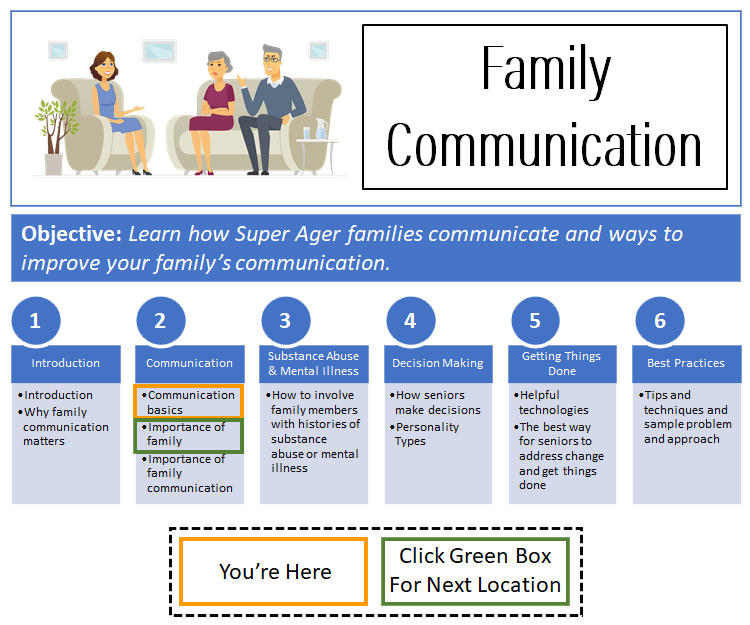Communication
Click here to see what's on this page.
If you’ve ever played a game of telephone, you know the difficulties of communication. Telephone involves players in a line. The first player makes up a message and whispers it in the ear of the next person in line, and they, in turn, whisper to the next in line, until the message gets to the last person in line. I observed a game recently with some teenagers. The first person whispered, “Stranger Things is my favorite show.” The last person in line said, “Jane’s getting a car.”

The game demonstrates the simplest construct of communication. A transmitter (speaker) encodes (language) a message and transmits (speaks) it to a receiver (the next kid in line) who decodes the message. So why does it get so botched? Welcome to the field of communication theory.
The Biggest Problem in Communication
Is the Illusion That It Has Taken Place
Generally credited to George Bernard Shaw
Theories Of Communication
Communication is well studied but not fully understood. Generally, effective communication requires a shared language, culture, and context. But what happens when you have a generation gap, gender differences, and psychological challenges? Or if you have racial or class differences? Communication gets more difficult as our differences increase. We share different realities.
This is not the place for a detailed review of communication theories. But Carmen and I will explain a couple theories to help you understand why family communication, especially between generations, may be very difficult.
Politeness Theory
Politeness theory is based on the observations that people seek approval (known as positive face) and try to avoid disapproval (known as negative face). People generally act positively when responding to the people above them in a hierarchy (like a boss); but have fewer needs for a positive face with subordinates.
Perhaps you’ve noticed your boss being more polite to their boss than to you. If you’ve acted polite at your spouse’s Thanksgiving dinner to gain her approval or kept quiet at your own family’s events to avoid confrontation, you know how this works. Smiling or nodding yes doesn’t usually facilitate functional communication. But with an occasional “It’s great to see you,” and “You look fantastic,” you’ve discovered how easy it is to promote positive face.
Social Exchange Theory
Social exchange theory is based on observations that people tend to respond to others based on a power relationship. Perhaps you’ve seen certain interpersonal relationships where one person says what they want, and the other acquiesces.
You may have noticed a child out of control, and a parent says, “Behave, or you won’t go to Disneyland with the family next month.” The child quickly stops the bad behavior. You’ve probably seen the opposite as well, where the child knows there will be no consequences on bad behavior, and the child doesn’t respond to the parent’s request.
Maybe you’ve known people in relationships that say “yes” to the more powerful person. Perhaps it’s a spouse who always chooses the family vacation spot. Or a spouse that moves the family all over the world to facilitate a career versus focusing on the needs of the family.
The point is communication is complicated. Knowing that people’s behaviors may be rutted, or rooted, in a series of behavioral techniques may help you identify how some people communicate. When you see that a point of view is not being recognized, or communication itself, is not really taking place, you may now know why. Knowing these theories can help you adjust your approach in order to get better outcomes.
Let’s look at a few areas that families face when trying to address complicated age related issues and why these are difficult.
Communication Challenges
The theories above explain ways people communicate. The theories work well in certain contexts. The manager – subordinate relationship is a great social exchange theory example. Almost all employees are deferential to their boss. The doctor – patient relationship is similar.
But there are also very real and persistent communication challenges unique to seniors. They involve the senior, and how the senior reacts with ther family, and how a senior reacts with their world.
Age Challenges
- Generation gap
- Parent-child relationships
- Members at very different life stages
- Different competencies with technologies (e.g., text, internet, Google drive, etc.)
Health Challenges
- Diminished cognitive capabilities
- Dementia
- Mental illness
- Poor eyesight
- Poor hearing
Geographic Challenges
- Family members live far away (i.e., some members may consider these members “out of touch”)
- Family members live very close (i.e., some members may consider these members “not objective”)
Interpersonal Challenges
- Very different personality types (e.g., pessimistic, optimistic, narcissistic, passive, assertive, etc.)
- Parent-child relationships
- Sibling relationships
- Unresolved family problems
- Family secrets
- Multiple Marriages
- Extended families (i.e., stepparents and children, step-siblings, etc.)
Financial Challenges
- Income inequities
- Perceived income inequities
- Poverty (e.g., can’t travel, can’t afford communication tools, etc.)
- Family members using resources as a manipulation tool, or perceived to be used as a manipulation tool
The Challenges Inform Us Of The Need To Plan
At CarePlanIt we believe knowledge of these difficulties can help set expectations. As Agers we face all the above communication-related challenges and they get worse as we continue to age. As family members of Agers we potentially face all the above when trying to effectively communicate with Agers. We also may start to address the same issues as we age.
The good news is that all of the issues related to aging are explained in CarePlanIt’s five master techniques: housing, health, finances, end of life chores and family communication. Each of these represents difficult challenges under the best of circumstances. If you’re addressing these issues as an Ager in your sixties, or earlier, you’ll have time to make lots of mistakes and try different ways to get you and the family on board with your decisions. This is what we hope you’re doing. If so, you may even have the chance to address some unfinished emotional business along the way like resolving issues with siblings, children and other relatives.
We Generally React Only After A Crisis
Unfortunately, most of us will be addressing these issues in response to a crisis. As an Ager, for example, it may be the anxiety surrounding moving out of your home, or the diagnosis of a chronic and life-shortening medical condition. It might also be related to the realization that your finances are running out, or that you haven’t made out an advance medical directive or a Will. During a crisis, or when you, or your parent is dying, or near death, everything is electrified.
In other words, physical and cognitive abilities are diminished. Emotional feelings are heightened. Stress levels are also elevated. All issues become more pronounced. Consequently, Carmen and I recommend focusing on the five master techniques, not on any unresolved family issues.
Avoid Unnecessary Challenges During A Crisis
If you’re questioning why you shouldn’t try and resolve family issues as you (as an Ager), or your parent is facing a life crisis or near death, try this metaphor. Imagine if I said to you, the best time to start a family, get married, and have children was when you would be in ill health, have cognitive challenges and face financial hardship.
Think for a moment. For example, you’re physically and mentally impaired. Moreover, you will not get better. In addition, financially, you face hardship and have no hope of ever earning money again. Is this the time to start a family? At the very least, you’d understand how challenging this set of circumstances would be for successfully starting a family.
There are opportunities to look at and address some issues. But if you really can resolve serious family issues, you certainly understand and know that they are best addressed when everyone is calm, healthy, relatively wealthy, and wise. In other words, it’s hard to start training for a marathon when you’re recovering from an accident.
Consequently, Carmen and I advise that you focus on effective communication techniques and clear objectives during stressful times. Having reasonably happy memories of working through difficult challenges with your family will be much more satisfying than failing to resolve long-held grievances.
Forgive, forget and apologize if you can do it quickly and to your satisfaction. Otherwise, you simply need to survive this very trying time.
Other Resources On Communication
A great article about effective communication here.
Also, a good article here.
Make sure to see our other sections, especially, Getting Things Done here, and Best Practices: Tips and Techniques, here.
